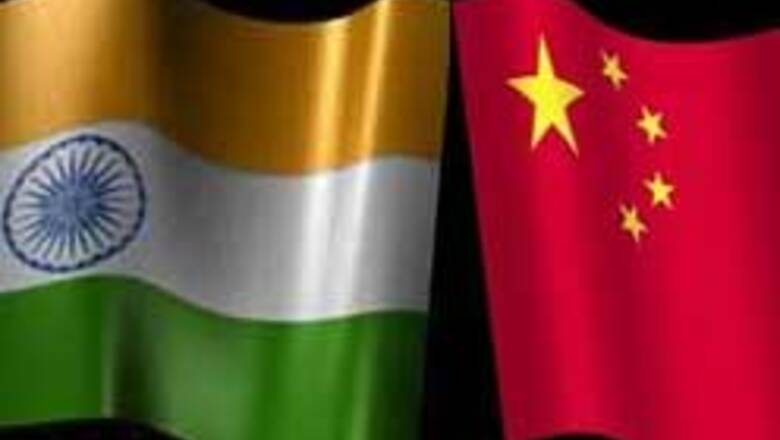
views
Doha: China and India, the world's most populous countries, were first and eighth respectively on the medals table - a stark difference in the sporting standards of the two countries - at the XVth Asian Games that ended in Doha on Friday.
China had a tally of 316 medals, including 165 gold, 88 silver and 63 bronze at the 45-nation competition.
By the close of the games, China had won its 990th gold medal in the Games' history, and the continental sporting superpower is set to break the 1,000 mark when the Chinese city Guangzhou hosts the 2010 edition.
India finished a poor eighth with 10 gold, 18 silver and 26 bronze for a tally of 54.
South Korea, which trailed second-placed Japan in the first few days of the 15-day extravaganza, eventually finished second overall with 193 medals that comprised 58 gold, 53 silver and 82 bronze medals.
Japan was third, having won 50 gold, 71 silver and 77 bronze for a final tally of 198 medals.
South Korean swimmer Park Tae Hwan was named as the Most Valuable Athlete of the games, while ace Indian pistol shooter Jaspal Rana, who won three gold and one silver, was third.
Park, who clinched three gold medals in the men's 200 metres, 400m and 1,500m freestyle races and also set up two Asian records, received 231 votes from journalists covering the games for the honour.
The prize comprised a trophy, a LCD TV and a $50,000 cheque.
Chinese gymnast Yang Wei was second with 132 and Rana third with 129 votes.
In the last event of the games, Qatar delighted a home crowd when it won the games' football competition for the first time with a 1-0 verdict against Iraq.
Bilal Mohammed Rajab got the winner in the 63rd minute - with the side of his head after Iraq goalkeeper Mohammed Khadoum failed to palm the ball away decisively after a corner kick.
The victory proved a popular one as the vociferous near-capacity crowd in the 15,000-seater Al-Sadd stadium kept on urging the local players forward.
Iraq seemed content in the first half to sit back and allow its opponents to come forward, hoping for opportunities to counter-attack.
These opportunities never came through as the hosts dominated.
PAGE_BREAK
They had several good opportunities, but were once denied by the woodwork after Uruguayan-born Sebastian Quintana came close with a header.
The victory gave Qatar its first-ever football medal at the Asian Games, while for Iraq it was the second appearance in a final, having beaten Kuwait 1-0 in the 1982 decider.
Earlier, former NBA player Wang Zhizhi scored a game high of 28 points to lead China to a 59-44 points win over hosts Qatar to regain the men's basketball title.
The bronze went to Iran, who defeated Jordan 84-78.
Wang, 27, who missed the Busan Games in 2002 where China lost to South Korea in the final match, added six rebounds in 36 minutes.
Qatar gave a tough fight to China in the later part of the third quarter by cutting the deficit to just four points before Wang came out to score six points in a row.
Wang Shipeng, 23, scored all his seven points in the fourth quarter despite missing two free throws with 20 seconds to go while Zhu Fangyu contributed 10 points.
Teenager Yi Jianlian, hit only three of nine two-pointers in the field to score eight, but grabbed 15 rebounds. Omar Abdelkader Salem led the scoring at 16 for the hosts.
A total of 8,050 athletes and 4,100 officials took part in the games that started on December 1.
The conduct of the games was praised by one and all, including the Chinese officials.
"The successful staging of the Asian Games not only makes Qatar proud, but also makes the whole of Asia proud," Chinese Sports Minister Liu Peng said.
Liu, who is also the president of the Chinese Olympic Committee, said the Beijing Olympic Organising Committee officials had been in Doha and "learnt a lot of valuable experience including expertise".
Meanehile, the Olympic Council of Asia (OCA) has decided to limit the number of sports in the Asian Games to 35 for the 2014 edition, said OCA director general Husain Al Musallam.
"We have indoor games and beach games. Some of the sports at the Asian Games will move to either one," he Al Musallam. "The size of the Asian Games will be reduced to something with 28 Olympic sports plus other sports and this is under negotiation with the organisers... anything between 35 and under."
The Games, which were launched in 1951 in New Delhi and held every four years, have grown into the second largest multi-sport event after the summer Olympics.




















Comments
0 comment